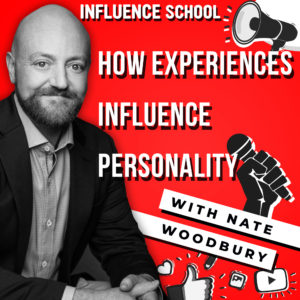
Download Now!
Dr. Paul Jenkins is a Positive Psychologist. When it comes to understanding certain things like personality and psychology matters, he’s the one to talk to. We have Dr. Paul joining Nate Woodbury as he answers questions about personalities and experiences in today’s episode. Check it out!
Welcome back. We’ve got a fun and maybe unusual topic about experiences and our personality. Got Dr. Paul Jenkins here. Positivity psychologist, good friend, mentor, guru. -Keep going, I’m enjoying this. -So, we’re going to talk about how our experiences influence our personality. For this topic, I kind of feel like it going in multiple directions. I’m really excited to hear your perspective on this because you know a lot about personality and I am all about influence. And when I saw this question. I’m like, “That’s a good topic, I want to have a conversation about…” -That’s a good one to have, Nate. In fact, you know what? The first thing that came to my mind about this is that there’s all kinds of experiences people have. I’ve been podcasting since 2007. -Yeah. -And in my podcast, I interview people who have had all kinds of experiences. And I’m talking everything from paralyzing accidents. Leaving people quadriplegic to more common things like a divorce or bankruptcy. These experiences that we have in life, whether they’re positive or negative, seem to illuminate personality. -Yes, explain what we mean by illuminate there. -You know, how when you squeeze a lemon? -Okay. -You get? -Lemon juice? -Lemon juice. Yeah. You’re brilliant, Nate. What if? What if you were to squeeze a tomato? You’re going to get? -Tomato juice. -Tomato juice. You don’t get lemon juice out of a tomato. And you can’t get tomato juice out of a lemon. And I think life’s experiences come in and sometimes squeeze us. And whatever it squeezes, what’s really inside of us is what comes out… -Okay. -…in these experiences. Now we can we can mold and shape our personality. I think our experiences have far less to do with influencing our personality as much as exposing our personality. -Okay. So, you’re suggesting that inside of me, I’ve got all these personality… -Juices. -You know, juices. Okay. Good and bad? Both positive and negative personality? -We’ve all got both. -Okay. But my experiences are going to allow that to shine? -Right. It will it will bring out what’s already in you. -So somebody that might have the same experience might react and kind of choose differently how… You know, what shine so that maybe it becomes a choice if we allow our experiences to bring out the positive part of our personality. -You can look at any major event that take a hurricane, a natural disaster, an earthquake. A terrorist attack. And watch what happens that when the incident occurs and then following that incident stories start to emerge. And the ones that catch most of our attention are the hero stories. The ones who because of this incident, this experience, it brought out their heroic personality. And that’s what catches our attention and inspires us. There are other stories about victims. -Okay? So, if you… If you just make a dichotomous characterization there, there’s victims and there’s heroes. And that’s inside of them. And so when this incident occurs, this experience happens, it squeezes that juice out and we get hero stories and we get victim stories. -Alright. So, are… This is like something that’s going through my mind then and a question that I have is our personality then really a belief in a perception of who we are? And we might have an experience, we choose to react in a certain way and then we now believe this is the type of person I am? -We develop these beliefs and we’re also programmed with them. You and I are speaking English, why? Did we decide to speak English? Did we choose speaking… -I don’t… I don’t know Japanese. -We’re just programmed to speak English. And I don’t know Japanese either. So, it’s good we didn’t pick that one. We’re programmed with a lot of what makes up our personality. Now, I’m not saying that you can’t change it. If i didn’t believe people could change, I have no business being a psychologist. But changing it is kind of like changing your language. Or learning a new instrument. It’s a choice and obviously to speak Japanese but it’s also a skill set. You have to work on developing the skills and the specific attributes that are associated with (Say) a positive personality. A hero paradigm. -Okay. So, I have a theory then. I have a theory that if I want to grow and improve and… The word personality might not be the best fit here but I want to develop, I want to grow and I want to improve. -Of course, you do. -So, then I’ve got to put myself in a place that’s going to have lots of experiences. Maybe even challenges. See, I look at entrepreneurship. And I love business and entrepreneurship because of the opportunity that’s available. -Mm-hmm. -But there’s so many challenges. I look back in retrospect over the last 9 years of me having this company. -Yeah. -It’s been a lot of challenges but it’s caused a lot of growth and it’s probably caused a lot of this personality juice to come out. -Right. And I love the word that you used opportunity. -Mm-hmm. -Which if you look at those two paradigms, the victim and the hero or the agent, (It’s what I call it sometimes.) paradigm, when something happens, when we have an experience, an event occurs, it is simply an opportunity. In a victim paradigm, we see it as a problem. It’s like this is bad, this is horrible, this is terrible, this is no good. In a hero paradigm, we see it as an opportunity. It’s a chance to get some of those hero juices flowing. To choose on purpose a particular response to the tragedy. And I think we’ve all got hero juice. I think if we’re programmed in a victim mindset, then our experiences are likely to squeeze some of that victim juice out of us. But if we stop long enough to think about our own thinking. This is beautiful because we talked in another video we did about metacognition. Which is thinking about your own thinking. When you stop to think about your thinking, it creates a little space and in that space is where choice is. Until you see it as a choice, it’s not. So, you’ll just roll with whatever you’re programmed to do. Sometimes… Maybe this gets back to our topic because sometimes an experience gives us enough pause from our routine that we can actually think about our response. And it therefore influences our personality. -Okay. I really like that. So, to wrap up this topic, for somebody who’s watching this video, they might think, “You know, I want to grow. I like where I’m at but I know I could be in a better place. I know I could be doing more.” -Oh, yeah. What do you suggest? I mean they could create experiences like, “Maybe I’ll just go skydiving.” I mean what? What’s a practical application for our video? -Create a stretch. Yes, I’m not necessarily advocating skydiving. And that impacts your ability to obtain life insurance too by the way. But something that stretches you. I turned 50 a couple of years ago. I signed up… -No way. -I know, right? Look at this. When I turned 50 I signed up for guitar lessons. Never played the guitar in my life. Is guitar choice? Yeah. It’s also obviously a skill set. You need to hire a coach and you need to do some sessions and you need to practice, practice, practice. Because of the skill set that’s involved and it’s the same thing with these personality characteristics. So, hire a coach. Have some sessions, do the practice. -So, if something feels like a stretch, that’s a good thing, okay. -Yeah, because that’s outside of your programming and it’s going to open up some possibilities. Learn a new language, learn a new instrument. Take on a new challenge, start a new hobby. New things tend to challenge your thinking and put us in a meta- cognitive state so that you can actually think about and choose where you’re going with it. -Alright. So, if you enjoyed this episode, whether you’re watching on YouTube or on LinkedIn, I’ve got 2 suggestions for you. One, you got to follow this guy on YouTube. Live On Purpose TV, Paul Jenkins. -Come and join us. -This guy is awesome. Now, the second thing… -Produced by Nate. -Produced by me. The second thing is I want to have more episodes like this with Paul out here on my channel and here on LinkedIn. But in order to do that, I want to know what your questions are around positivity, around influence. So leave those in the comments below and that will give us ideas for more future episodes. We’ll see you then.
